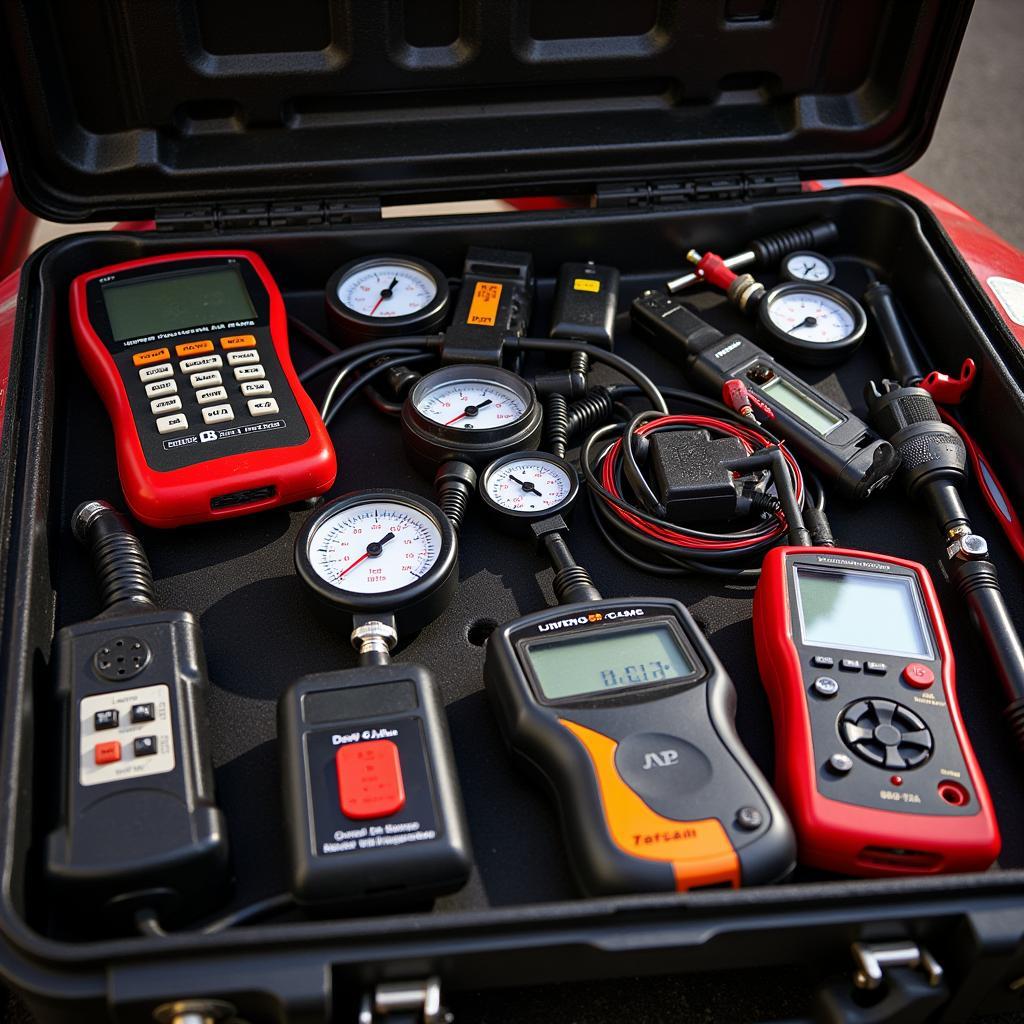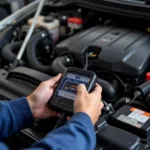Knowing how long a car diagnostic takes can feel like solving a mystery. You’re facing warning lights, strange noises, or performance issues, and you just want answers—fast. This guide dives into the intricacies of car diagnostics, exploring the factors influencing the time it takes and providing realistic expectations for your next trip to the mechanic.
Deciphering Diagnostic Trouble Codes (DTCs)
At the heart of car diagnostics lies the OBD-II port, a standardized interface found in vehicles manufactured after 1996. This port allows mechanics to tap into your car’s computer system, reading Diagnostic Trouble Codes (DTCs) that pinpoint potential issues. While retrieving these codes might seem like a quick task, their interpretation is where the real work begins.
Think of DTCs as clues rather than definitive answers. A single code could have multiple possible causes, requiring further investigation. For instance, a “P0420” code, indicating a potential catalytic converter problem, might stem from a faulty oxygen sensor, an exhaust leak, or even a misfire issue.
Factors Affecting Diagnostic Time
The duration of a car diagnostic can vary significantly depending on several factors:
1. Complexity of the Issue: A simple loose gas cap triggering a “check engine” light is a far cry from a complex electrical fault. The more intricate the problem, the longer it takes to unravel.
2. Mechanic’s Expertise: An experienced mechanic with specialized knowledge and access to advanced diagnostic tools will likely pinpoint the root cause more efficiently than a novice technician.
3. Vehicle Make and Model: Some vehicles are inherently more complex than others. Luxury cars and those with advanced technology features often require specialized equipment and knowledge, potentially lengthening the diagnostic process.
4. Availability of Parts and Information: In some cases, a mechanic might need to order specific parts or consult technical service bulletins for your vehicle model, adding time to the overall diagnosis and repair.
Typical Diagnostic Time Frames
While providing an exact timeframe for all car diagnostics is impossible, here are some general guidelines:
- Basic Scan: Retrieving DTCs with a panlong bluetooth obd2 car diagnostic scanner can take as little as 15-30 minutes.
- Comprehensive Diagnosis: For more complex issues, a thorough diagnostic assessment, including visual inspections, component testing, and data analysis, might require 1-2 hours or more.
When to Seek Professional Diagnostics
Attempting to diagnose car problems yourself can be tempting, especially with the availability of DIY diagnostic tools. However, certain situations warrant the expertise of a qualified mechanic:
- Warning Lights Persist: If warning lights like the “check engine” or “ABS” light stay on despite basic troubleshooting, it’s crucial to consult a professional.
- Unusual Noises or Smells: Ignoring unusual noises, vibrations, or burning smells can lead to significant and costly damage down the line.
- Performance Issues: Sudden changes in fuel efficiency, engine performance, or braking require immediate attention from a qualified mechanic.
Finding a Trustworthy Mechanic
Choosing the right mechanic can significantly impact the accuracy and efficiency of your car diagnostic.
- Check Online Reviews: Websites and apps like Yelp, Google My Business, and Angie’s List provide valuable insights from previous customers.
- Ask for Recommendations: Seek recommendations from friends, family, or local automotive groups.
- Consider Specialization: If you drive a luxury car or one with a specific engine type, look for mechanics specializing in those areas.
Don’t hesitate to ask about the mechanic’s experience, diagnostic process, and estimated time frame before authorizing any work.
Diagnostic in Car How Long: Key Takeaways
Understanding the factors influencing car diagnostic timeframes empowers you to make informed decisions about your vehicle’s maintenance. While a simple diagnostic scan might be quick, complex issues necessitate a more thorough approach, potentially taking several hours. By recognizing when to seek professional help and finding a trustworthy mechanic, you can ensure accurate diagnoses, timely repairs, and the longevity of your vehicle.

